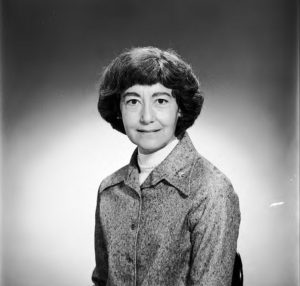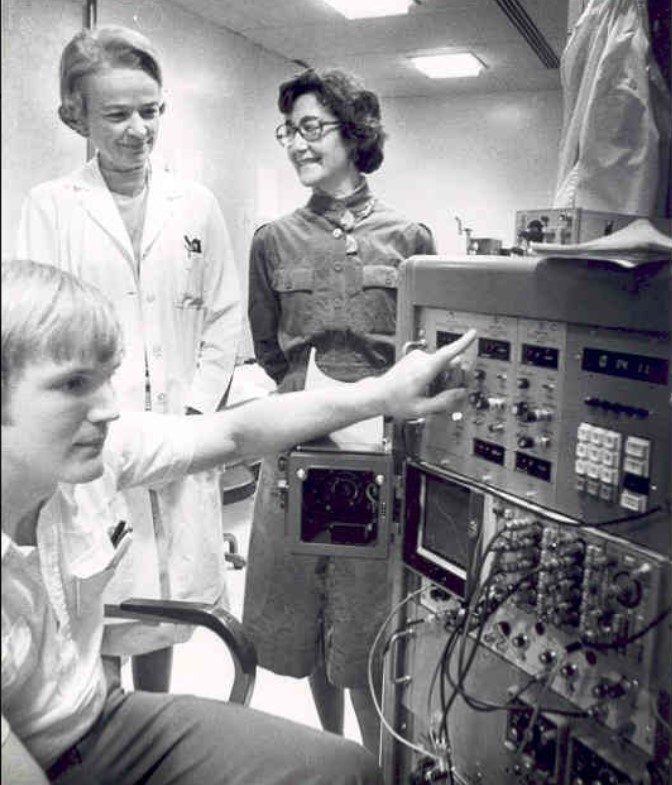
Photo info ...
Credit: Indiana University IndianapolisView Source
(July 16, 1923-April 12, 2022). Born in New York City, Doris Merritt was the daughter of Haron and Lillian Honig. In an unpublished autobiography, she identified Midge Balf, an English teacher, as an early influence on her future academic pursuits. Merritt graduated cum laude and Phi Beta Kappa in English literature from Hunter College University of New York City in 1944. During World War II, she served in the U.S. Navy Officer Corps.

Following the war, Merritt took science courses from 1946 to 1948 to apply to medical school. She earned an M.D. from George Washington University School of Medicine, the eleventh-oldest U.S. medical school located in Washington, D.C., in 1952, and attended Duke University, in Durham, North Carolina, for her residency in pediatrics. While at Duke University, she served as an assistant resident in pediatrics from 1954 to 1955 and as a fellow in pediatrics from 1955 to 1956. When Merritt’s husband took a job at the National Institutes of Health (NIH) in Bethesda, Maryland, in 1957, she became executive secretary for the Division of Research Grants for the agency. In this position, she mastered fundraising for medical research.
Merritt joined the faculty of the (IUSM) in 1961. Her first position was director of Medical Research Grants and Contracts, but within a year, she became assistant dean of Medical Research. She was the first woman to serve as an assistant dean for the school. In this role, Merritt raised an estimated $105 million for IUSM’s research and construction projects.
In 1965, Merritt’s purview expanded to the entire Indiana University system in Indianapolis as assistant dean. She retained this position after the consolidation of Indiana University and Purdue University to form (IUPUI) in 1969. She served as assistant dean of Research until 1978. That same year, she moved back to Bethesda to become the first woman to chair the Board of Regents for the National Library of Science at NIH. Here she played an important role in establishing the library’s electronic information system.
In 1988, Merritt returned to the IU School of Medicine as an associate dean. Known as an efficient administrator, Merritt stepped into whatever role the university needed. Her passion to learn and diversify her skillset landed her the position of dean of the Purdue School of Engineering and Technology at IUPUI, after the unexpected resignation of the school’s former dean in 1995. Merritt was the first woman appointed to this role, and she served as dean for two years, before filling another unexpected vacancy as associate vice president for Research and Graduate Studies. After a long career, Merritt retired in 1998.
Merritt received the IUSON Distinguished Non-Alumnus award, the Sagamore of the Wabash, and an honorary Doctor of Science for Purdue University and Indiana University. In 1994, she was the first recipient of the Doris H. Merritt Award, which the (IUSON) created in her name to honor service to nursing. The Purdue School of Engineering, Indianapolis, and the IUSM Center for Women’s Health also established a leadership award in her name in 1997.
In an interview with the Tobias Center for Leadership, she referenced IUSM’s designation as a Cancer Center (1999) and a Center for Aging (1997) and her effort to start the National Center for Nursing Research (1986) as three of her biggest achievements.

Help improve this entry
Contribute information, offer corrections, suggest images.
You can also recommend new entries related to this topic.